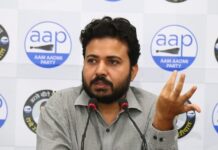
Buenos Aires, India has called for a strong and active cooperation across G-20 countries — including in legal processes for effective freezing of proceeds of crime and early return of offenders — to deal with fugitive economic offenders and facilitate asset recovery.
Presenting a nine-point action programme against fugitive economic offenders at the second session of the G-20 Summit on Friday, Prime Minister Narendra Modi said there was a need for a joint effort by member countries to form a mechanism that denies entry and safe havens to all fugitive economic offenders.
He also suggested that the G-20 forum should consider initiating work on locating properties of economic offenders who have tax debt in the country of their residence for its recovery.
“Cooperation in the legal processes such as effective freezing of the proceeds of crime, early return of the offenders and efficient repatriation of the proceeds of crime should be enhanced and streamlined,” he said.
He added that the principles of UN Convention Against Corruption (UNCAC) and UN Convention Against Transnational Organized Crime (UNOTC), especially related to international cooperation, should be fully and effectively implemented.
“The Financial Action Task Force (FATF) should be called upon to assign priority and focus to establishing international cooperation that leads to timely and comprehensive exchange of information between competent authorities and Financial Intelligence Units (FIUs)
“FATF should be tasked to formulate a standard definition of fugitive economic offenders,” Modi said in his nine-point agenda.
He added that the FATF should also develop a set of commonly agreed and standardised procedures related to identification, extradition and judicial proceedings for dealing with such offenders to guide and assist G-20 countries, subject to their domestic law.
“Common platform should be set up for sharing experiences and best practices including successful cases of extradition, gaps in existing systems of extradition and legal assistance,” the Prime Minister said.








